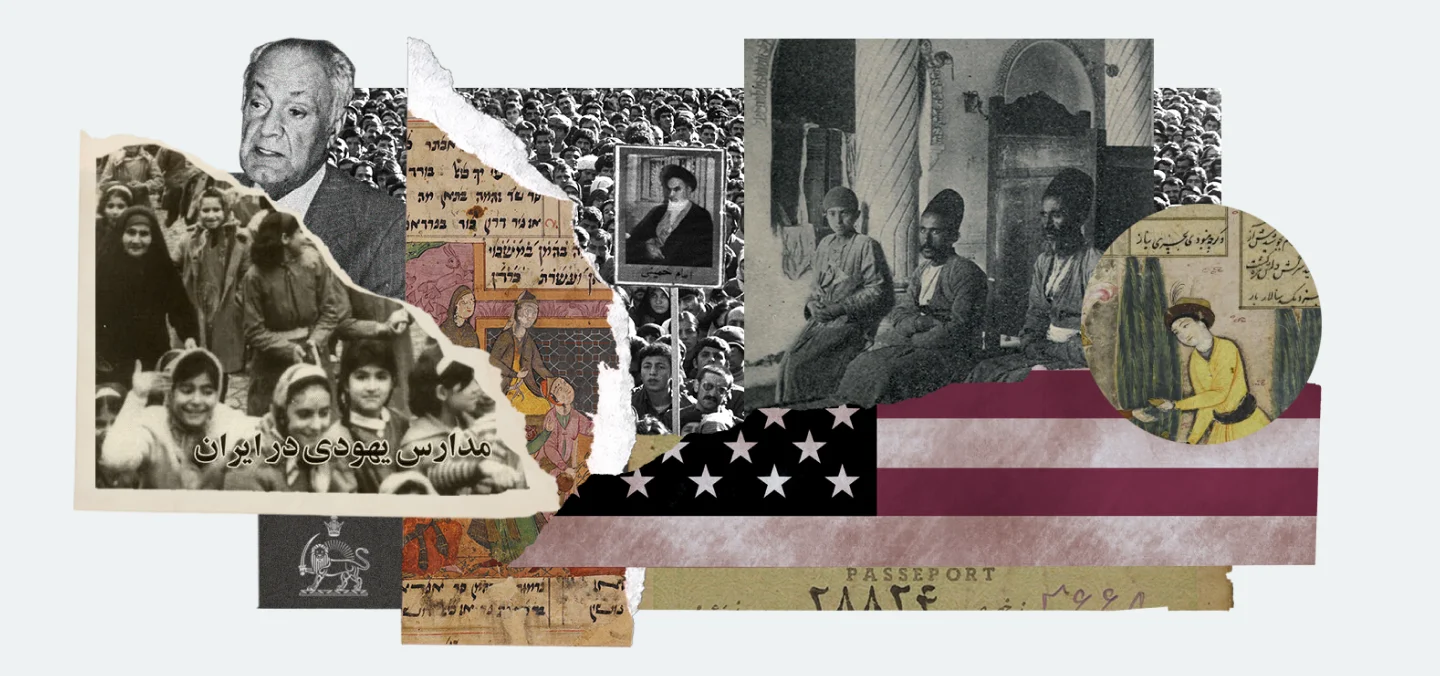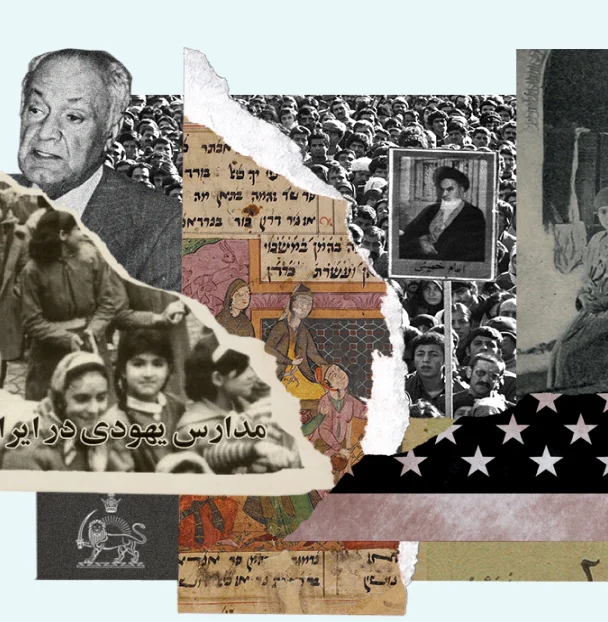“Daddy, I am scared to go to sleep!”
“Why are you scared to go to sleep?”
“Because I am afraid of being attacked for being Jewish.”
This is a bedtime conversation I recently had with my 8-year-old daughter. For the record, we live in Los Angeles in the United States of America, and the year is 2024.
I was born in Iran, but I am one of the lucky ones. Prior to the Islamic Revolution, Iran had a Jewish population of about 100,000. I was just 4 years old when I left Iran with my family in 1977, two years prior to the revolution, and we resettled in London. I did not personally experience or witness the brutality of the government of the Islamic Republic and never had to fear for my safety because of my religion. Unfortunately, many others did, and still do to this day.
My parents decided to leave behind their family and friends in search of a better future for me and my siblings. My mother, who felt like a second-class citizen because she was a woman (and a Jewish one at that), wanted to move from Iran to be able to live her life free of restrictions. My father sensed a change brewing that he feared would lead to an unsafe environment. History shows they had good intuition.
Shortly after the revolution, the new government of the Islamic Republic of Iran, under the leadership of Ayatollah Ruhollah Khomeini, executed one of the leaders of the Jewish community, Habib Elghanian, sending a very clear message to Jews that life would not be easy there and likely would be dangerous.
Since that time 44 years ago, more than 90% of the Jewish community has left Iran, many seeking refuge in the U.S. (mostly in Los Angeles and New York), where they have been able to experience and enjoy many freedoms, among them to openly observe and practice their religion without the threat of persecution.
About 15 years after our move to London, my parents and my younger brothers emigrated to Los Angeles to join other members of our family who already had resettled here after the revolution. I joined them a few years later after I completed my law degree.
Unfortunately, the recent widespread and unprecedented surge in antisemitism around the world — and particularly in the U.S., affecting Jews of all backgrounds — serves as a stark reminder of the all-too-familiar fear and persecution Jews faced in Iran during the revolution and for more than four decades thereafter, up to and including the present day.
Never, in my wildest imagination, did I think that in the 21st century, in the land of the free where millions of people from all religious and ethnic backgrounds throughout the world have sought refuge, Jews in the U.S. would feel unsafe because of their religious beliefs or that parents, including me and my wife, would constantly fear for the safety of their children simply because of our religion.
The saying “May you live in interesting times” is said to be a translation of a traditional Chinese curse and while it may sound like a blessing, it usually is used ironically to mean that life is better in uninteresting times of peace and tranquility than in interesting ones, which usually are times of trouble.
Alas, we live in interesting times.
My wife and I find ourselves constantly looking over our shoulders, particularly since the events of October 7, 2023, and our many friends and relatives feel the same way. It saddens me to see relatives who always have been proud of their religion take down their mezuzot for fear of being targeted. It saddens me that my own children are afraid to wear anything that identifies them as Jewish, including clothing and the Star of David necklaces they bought on our recent trip to Israel. It saddens and scares me, more than I am willing to admit to my children, that we must be extra vigilant of our surroundings every time we step outside of our home.
It scares me that men in a white van driving past the karate studio our children attend felt empowered, without fear of any consequences, to use a megaphone to scare a 7-year-old child and his mother walking to their car by shouting, “We are Hamas! We are going to cut your head off!”
These are only examples of some incidents I personally know about. Unfortunately, the media and internet are full of other examples of antisemitism and reasons for the Jewish community to be fearful.
How can I assure my children they are safe and should not fear being attacked for being Jewish?
With all the threats surrounding us in Los Angeles and elsewhere in the U.S., I find myself thinking often about my parents who sensed the trouble ahead in Iran and made the undoubtedly painful decision to continue our Jewish diaspora by leaving our homeland for a safer place to raise their children, leaving behind loved ones in the process. I think often about how my parents knew, seemingly innately, when it was time to leave, and whether I am blessed with the same canny instinct they had.
It saddens me that my own children are afraid to wear anything that identifies them as Jewish, including clothing and the Star of David necklaces they bought on our recent trip to Israel. ”
In addition to leaving Iran in 1979, Jewish history is tormented with many other instances when it was time to leave. In 1939, it was time for Jews to leave Germany. In 1941, it was time for Jews to leave Iraq. Is 2024 the time for Jews to leave America?
I would be lying if I said I had not already thought about it, particularly after the horrific events of October 7, for reasons similar to those that prompted my parents’ decision to leave Iran, namely a safer, better and brighter future for our children and ourselves.
My wife and I have discussed moving out of the country only in general terms, however. Other than Israel, which has its own challenges, we have yet to identify anywhere in the world where we would not have the same or similar concerns that prompted our discussion. Our conversation regarding a possible move has not evolved into a serious one yet because, “It couldn’t happen here.” Right?
Do we simply have our heads in the sand? Are we in denial of the realities that are prevalent in virtually every Jewish neighborhood and in every major U.S. city, in every elementary, middle and high school, and college throughout the country?
Can it happen here?
Is it time to leave?
When I first started to think about this, I was confident that because of the rampant and increasing antisemitism in the U.S., my conclusion would be that it is, indeed, time for the Jewish community to leave. Why should we stay in a country where we have to live in fear of persecution because of our religious beliefs? Historically, when we have been confronted with threats of — and actual — persecution because of our religious identity, we have left the offending country and found refuge elsewhere. Why should this time be any different?
It is different, though.
While it may not always feel like it, we live in a democracy in the U.S. and therefore have certain rights and freedoms that Jews did not have in the countries they fled from in the past. The U.S. political and democratic processes are designed to ensure that all citizens of all backgrounds, ethnicities and religious beliefs can pursue and enjoy the unalienable rights referenced in the Declaration of Independence and the domestic tranquility and general welfare referred to in our Constitution.
We must stop living in fear.
We must stop running.
We must remember why we came to the U.S. in the first place.
Our Jewish community is large enough and active enough to fight the good fight. We have to stay, using the democratic, political, legal and other tools available to all citizens of the U.S., to make the changes necessary to improve circumstances and create a safe environment for our generation, our children and all future generations of the Jewish community. We have done so until now and it is our responsibility and obligation to stay and continue to do so. By successfully pursuing this course, we also will ensure that we can continue to influence the policies of the U.S., the most powerful country in the world, toward Israel and the safety and security of Jews around the world.
If we can’t make it here, we won’t make it anywhere.
It is not time to leave.



